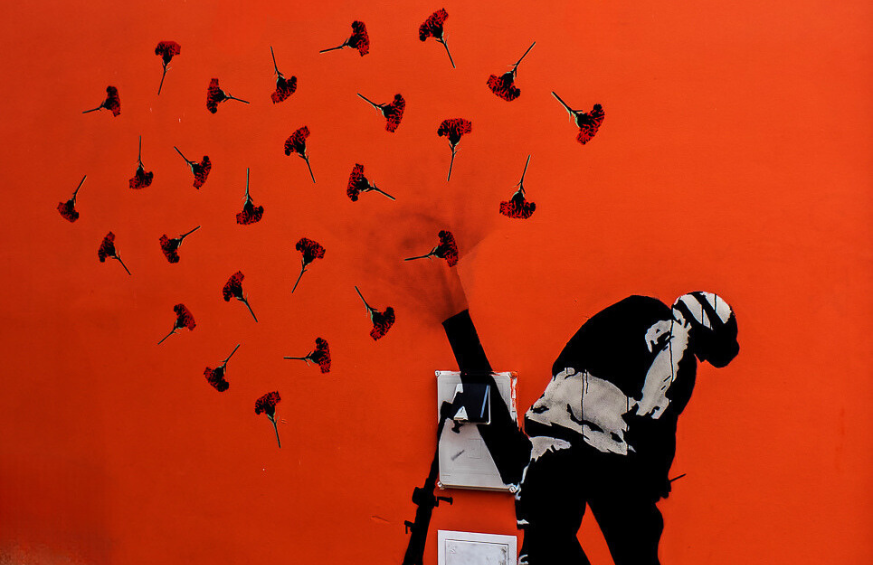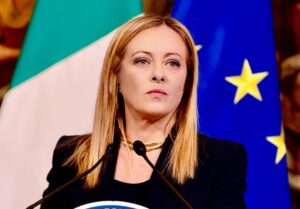The political earthquake – or, how an absolute majority can be a source of instability
To understand the results of the 10 March elections, which marked the end of a political cycle and the country´s shift to the right, it is essential to understand the two previous elections.
In 2019, after a four-year term completed in full, during which the Socialist Party (PS), despite not winning the elections, governed through parliamentary agreements with the two parties to its left (Bloco de Esquerda and the Communist Party), the PS won the elections and chose to govern without any agreements with the left. Following the 2019 elections, in which a far-right MP was elected for the first time, the PS was required to negotiate the approval of the state budget every year. They managed this in 2020 with the Communist Party, but refused to do so in 2021. Any possibility of negotiation was nullified by the President, who announced that he would dissolve parliament if the state budget was not approved, even before its presentation. This was an option available to the President, though certainly not the only one. These elections were marked by the PS’s dramatised shifting of the blame for its own failures onto the left-wing parties. A significant portion of the left-wing electorate voted for the PS for fear of a right-wing government with the far-right, which was amplified by the main centre-right party leader’s refusal to clarify his alliance policy. This strategy proved successful. To counter the far right, many left voters supported the PS, which emerged from the election with a landslide victory and an absolute majority. Twelve MPs from the far-right party entered the new parliament, and their vote share increased from 1 to 7 per cent. Although this might have suggested that Portugal would have a stable government for the next four years, the reality was not so simple.
On 7 November 2023, exactly one month after the event that led to the worst massacre witnessed this century, the government led by socialist António Costa collapsed with a thunderous bang. This was triggered by a still ongoing investigation into major Portuguese green energy projects and the construction of the EU’s largest data centre. The investigation targets CEOs of major companies, a mayor, the minister of infrastructure, members of the prime minister’s cabinet, and, to everyone’s amazement, the alleged involvement of the prime minister himself. In light of this news, António Costa tendered his resignation to the president of the republic, who promptly accepted it and decided to dissolve parliament and call new early elections. Once again, the President’s decision was not the only one constitutionally possible.
It is now known that the prime minister’s alleged involvement is extremely implausible, raising very serious doubts about whether the judiciary interfered in the realm of political power. This has led to the country being forced into elections amidst a climate of high suspicion. In short, the conditions were ripe for a seismic shift in the Portuguese political landscape.
The electoral tsunami
With the exception of three parties with parliamentary seats (the far-right party Chega (Enough), the centre-left party Livre, and the animalist party PAN), all other parties entered these elections with new leadership.
The new leader of the Socialist Party, elected just a couple of months before the elections, Pedro Nuno Santos, was António Costa’s former minister of infrastructure and housing from 2019. He resigned in late 2022 after a scandal involving the payment of a hefty indemnity. He is known for his role as a political negotiator with left-wing parties in the government from 2015 to 2019. Throughout the campaign, he faced significant challenges as the new leader of the incumbent party which presented the electorate with a catch-all strategy.
The new leader of the centre-right party (PSD – Partido Social Democrata/Social Democratic Party), Luís Montenegro, opted to run in a coalition with the conservative party (CDS/PP which had lost parliamentary representation in 2022) and a vestigial party (PPM): the Democratic Alliance (AD – Aliança Democrática), a weak attempt to revive the old right-wing coalition that governed between 1979 and 1982. During the election campaign, AD primarily presented a programme based on lower taxes, a return to public-private partnerships, and strengthening privatisations. This was a lighter version of the programme of the neoliberal party IL (Liberal/Liberal Initiative), which also participated in these elections with a new leader, Rui Rocha. Unlike his predecessor, Luís Montenegro was very clear about his post-election alliance policy: he would not form a government with the far right. This created a cordon sanitaire that proved effective throughout the campaign, as little was said about the far right, and nobody was willing to engage with them.
The left-wing parties Bloco de Esquerda (BE – Left Bloc) and the Portuguese Communist Party (which always stands in coalition with the Ecologist Party – CDU) also participated in these elections with new leaders: Mariana Mortágua and Paulo Raimundo, respectively. Their political proposals aimed primarily to address the major crises facing the country (housing, health, education) and to increase the income of workers and retirees. Mortágua called for compromises on the left early in the campaign, a call echoed by Raimundo towards the end of the electoral campaign period.
After a long election night, the preliminary final results[1] of the National elections in Portugal indicated that, contrary to poll predictions, the right coalition AD had an incredibly slim victory – with 29.5% and 79 MPs (27.7%, 77 MPs in 2022) – over the Socialist party, which ranked second with 28.6% and 77 MPs (41.4% and 120 MPs in 2022).
The fourth political force remains the neoliberals of IL, with almost the same score as two years ago (5.1% and 8 MPs).
Bloco comes fifth and, although with a 30,000-vote increase, did not increase its 5 MPs and scored 4.5% (4.4% in 2022). The Communist Party lost votes (almost 37,000) and two MPs, now holding 4 seats in parliament and 3.3% of the share of votes (4.3% in 2022). Livre achieved the same percentage as the Communists, with 4 MPs (1 MP and 1.3% in 2022). The animalist party PAN achieved approximately the same results as in 2022: 1 MP and 1.9%.
Coming in third, the resounding winner of this election is the far-right party Chega, with 18.1% and 48 MPs (7.2% and 12 seats in 2022), more than doubling its score and quadrupling its number of seats in parliament. Chega managed to elect MPs in all electoral districts except three (the islands of Madeira and Azores and a district in the mainland). While early polls indicated an excellent result (between 17 and 20%) for Chega, in later weeks it looked as if it was in decline, suggesting a result of 13% or lower. During the election campaign, the far-right party’s only clear message was based on the idea of ‘cleaning up Portugal’ – a message borrowed from far-right parties in other countries, where they portray themselves as ‘anti-establishment’. Programmatically, the party managed to promise a bit of everything and its opposite, with clearly unrealistic proposals. However, this confusion or lack of ideas did not seem to penalise them in any way.
Another noteworthy element emerged from these elections: more than 750,000 voters mobilised to vote, resulting in the highest turnout since 1995 – 66.2% of registered voters. Although it is still too early for rigorous and in-depth electoral analyses, it seems apparent that this mobilisation favoured the far-right above all. The constituencies where Chega grew the most were those with the biggest increase in the number of voters. This appears to be a clear indicator of an extraordinary desire for disruption that cannot be ignored and needs to be described and more fully understood.
Breaking the waves
The president is currently holding hearings with all parties represented in parliament and will, by 20 March, invite the leader of the centre-right coalition to form a government, possibly with the neoliberals (IL).
Today, the dark tide that swept across the country seems to have left three isolated islands on the surface: a right-wing bloc with 87 MPs, a left-wing bloc with 91 MPs, and the far-right bloc with 48 MPs. With such parliamentary geometry, it is hard to see how the new government can survive to the end of the legislature. It will be forced to navigate the coming waves with redoubled caution. The Socialists seem clear in their desire to lead the opposition to the future government. However, if such opposition leads to the resignation of the government, they risk being labelled an ‘element of instability’. On the right, the far-right continues to express its desire to be part of the ‘solution’ and guarantee stability. This places the future government in a paradoxical position: if it yields to the far right, it risks hollowing out the right; if it maintains its election-campaign position of maintaining a cordon sanitaire against the far-right, it will foster the victimisation narrative that the far-right is so proficient at using to its own advantage.
This is not new: in politics, there are no ‘empty spaces’. These elections show us that, as of today, it is this new-extreme right that is occupying the void created by the neoliberal and austerity policies of recent decades into which the mass of disinherited people have been thrown.
The two-party system that prevailed in Portugal until 9 March has left behind it – with different nuances and more or less accentuated phases – a trail of impoverishment, precariousness, uncertainty, and hopelessness. This was not limited to the austerity years of 2011-2015. After a pandemic, the resurgence of war in Europe, and amidst an inflationary crisis, during the last two years of PS government, while health and education were plummeting towards collapse and in the face of an unprecedented housing crisis and a spectacular rise in the cost of living, the government focused on bringing Portugal’s debt to historic lows and achieving record-breaking ‘economic growth’. In short, the government obeyed every economic indicator dictated by orthodox neoliberal economic doctrine and presented it as ‘successful development’. The times present great challenges for the left, and action is needed. Perhaps the greatest challenge is to reconfigure hope in a future that effectively crystallises a rupture with ‘the point we’ve come to’[2].
References:
[1] Four seats are still unassigned; they correspond to voters living in other European countries or outside Europe and are expected to be announced on 20 March.
[2] Free translation of the expression “o estado a que chegámos” by Salgueiro Maia, historical leader of the Carnation Revolution, in a famous speech to the troops that marched through Lisbon in the evening of 24 April 1974.
Image: Graffiti (Lisbon) Carnation Revolution. ©Wikimedia Commons



